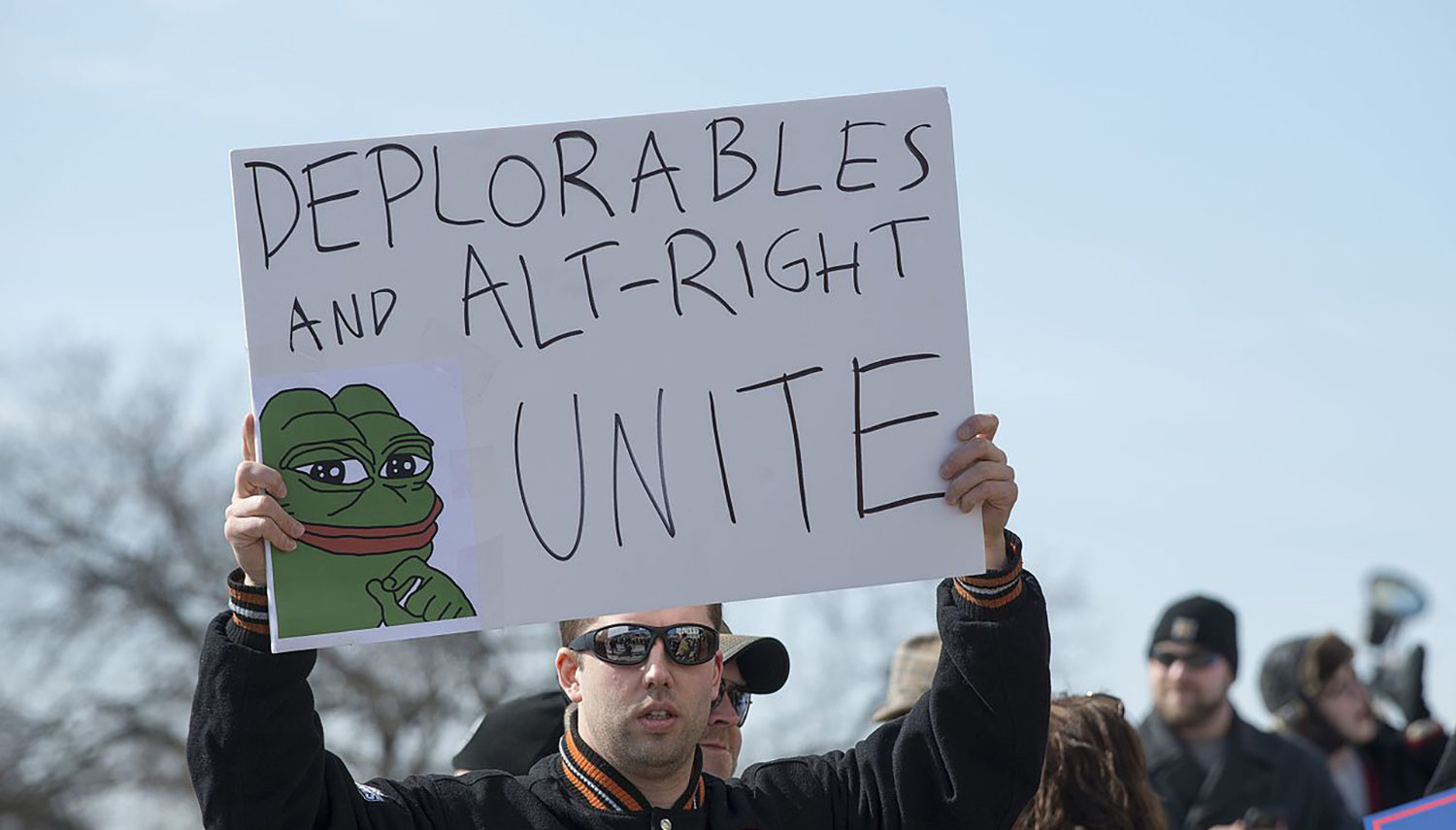More than 400 Christian leaders from a variety of denominations have signed a document condemning white supremacy beyond the “alt-right” brand of hate recently seen in Charlottesville, Va., extending to more subtle and socially acceptable forms of racism including white privilege.
Co-authored by CJ Rhodes, chair of the commission on ecumenical relationships for the National Baptist Convention USA Inc., and Jemar Tisby, president of the Reformed African American Network and co-host of the “Pass The Mic” podcast, the Aug. 25 Charlottesville Declaration calls on white evangelicals “to condemn in the strongest terms the white supremacist ideology that has long existed in the church and our society.”
“From the founding of this nation until the present hour, the idolatry of whiteness has been a pro-death spirit within our republic,” the declaration reads in part.
“It is easy for us to scapegoat the domestic terrorists who incited violence that ended in the deaths of three Americans,” the statement says. “We can call them extremists who do not represent American values, but upon closer examination, the ideology deployed as a weapon in Charlottesville haunts every institution of the country, including the church.”
The declaration calls on the black church to own its historic role of prophetic preaching on display during the Civil Rights Movement to address lingering racial division today. It invites all Christians of good will to learn about “ways in which the church both legitimated and resisted white supremacy throughout the last several centuries.”
Jarvis Williams, associate professor of New Testament interpretation at Southern Baptist Theological Seminary in Louisville, Ky., said in an article posted earlier on the Reformed African American Network website it is impossible to talk about the legacy of white supremacy without discussing “white privilege” — advantages that people have done nothing to earn and may not even know they have, simply because they are white.
“Christians cannot seriously talk about race, racism, or pursue Christ-centered reconciliation in this country and Christian spaces without having a serious conversation about the privileging of whiteness or without working to leverage the privilege(s) of whiteness in Christian spaces,” wrote Williams, who is black.
Williams said one example of white privilege is the assumption in American history that blacks would serve whites because of their belief in white superiority. After slavery was abolished, white supremacists “created a whole system that marginalized black people and kept them at the very bottom of the social order.”
The system guaranteed that generations of whites would have economic, political and educational access not available to many non-whites, Williams said, leading to inequalities that linger a century and a half after the Civil War.
“While many Christians rightly condemn overt expressions of white supremacy, covert expressions of white supremacy are often allowed to flourish in Christian spaces and in society at large because they are either denied or unnoticed,” Williams said.
Signers of the Charlottesville Declaration include Dwight McKissic, pastor of Cornerstone Baptist Church in Arlington, Texas, and originator of a resolution denouncing the alt-right adopted by the Southern Baptist Convention this June.
Other well-known Southern Baptists signing the declaration include H.B. Charles Jr., senior pastor of Shiloh Metropolitan Baptist Church in Jacksonville, Fla.; C. Ben Mitchell, Graves Professor of Moral Philosophy at Union University in Jackson, Tenn.; Nathan Finn, dean of the School of Theology and Missions at Union University; and Jason Duesing, provost at Midwestern Baptist Theological Seminary and College in Kansas City, Mo.
Bloggers Dave Miller, editor of SBC Voices, and Alan Cross, a Southern Baptist minister, author and founder of Community Development Initiatives, a nonprofit promoting spiritual, social and economic development, are among signatories.
Most of the 412 signatories as of Monday morning, Aug. 28, identify as conservative evangelicals, but some — like author, activist and Red Letter Christians founder Shane Claiborne — are left-leaning. Information about adding other names to the document can be found here.
At the SBC annual meeting in Phoenix in June, a majority-white SBC Resolutions Committee first declined to recommend McKissic’s resolution, but after parliamentary wrangling presented a revised resolution decrying “every form of racism, including alt-right white supremacy, as antithetical to the Gospel of Jesus Christ.”
Part of the language omitted from the resolution McKissic submitted prior to the convention was repudiation of the “curse of Ham,” a once-common but now little-held belief that God through Noah ordained descendants of Africa to be subservient to Anglos used for many years in the Southern Baptist Convention to justify slavery and segregation.
Many Americans were largely unaware of the alternate right, or alt-right — a term coined by white nationalist Richard Spencer to describe a variety of far-right ideologies rejecting mainstream conservatism in favor of identity politics — until the group began flexing its political muscle with the election of President Donald Trump.
Since violent protests over removal of a Confederate monument in Charlottesville in early August, some of that focus has shifted to the “alt-lite,” people who aren’t overt white supremacists but share the alt-right’s hatred of feminists, immigrants, Muslims and others.
Previous stories:
Clash continues two months after SBC alt-right resolution snafu
Alt-right isn’t new to Christianity, says author Brian McLaren

